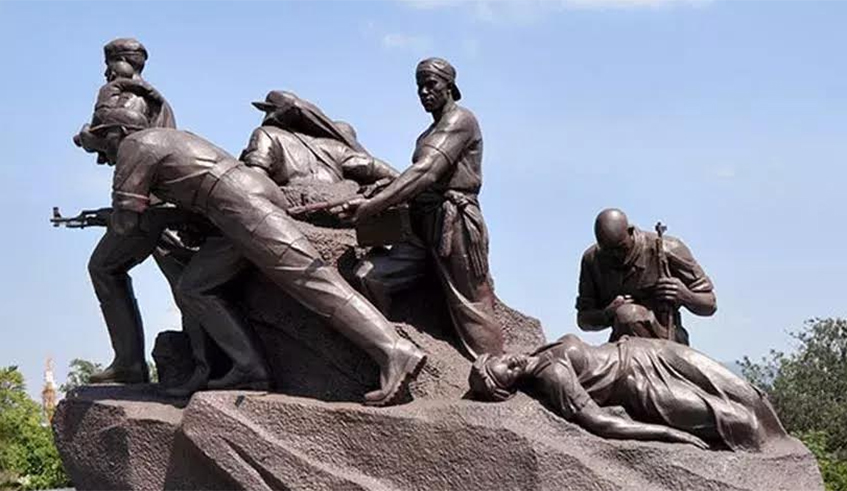“As leaders we must carry the burden of responsibility” – H.E Paul Kagame
Patriotism and pan-Africanism are 2 key things that have always defined Africa. As a proud Rwandan I know for a fact good leadership and a sense of pan-Africanism can make or break an African country and that the patriotism and overall love of Africa found in our leaders like President Paul Kagame and Fred Gisa is what steered Rwanda to become the beacon of hope it is today.
These tales of strength are not isolated to Rwanda, it is all a part of a bigger picture for us Africans as a whole. A picture that even involves my grandfather, Djibouti’s Abdourahman Ahmed Hassan aka Gabode.
Just as Rwanda’s path to a beautiful nation celebrated for its beauty and opportunity is spearheaded by strong leaders with a pan-African spirit, the story of Djibouti and my grandfather is no different.
Like most African leaders, Abdourahman Ahmed’s story begins with a cause.
My grandfather’s story begins in 1956 when AbdourahmanAhmed’s involvement in trade and activism for labor workers allowed him to replace Mahamoud Harbi as secretary general of the trade union. His involvement in the struggle of the laborers in his country earned him a seat in the Territorial Assembly. He held this position while still leading the trade union. A love for his people ignited his cause.
Colonial forces were relentless when it came to their methods for controlling African countries, but it only made us stronger. When barsh divide and conquer techniques were used on Rwandans to make us turn on one another, a pan-African spirit was maintained when the Tutsis that were facing prosecution began seeking asylum in the African countries around them, this spirit was reciprocated when the African countries received and took in Tutsi asylum seekers. A sense of patriotism also came into play when we refused to divide ourselves and began simply identifying as Rwandan.
In Djibouti, colonial powers rigged a referendum that forced Djibouti to stay a French colony. During this time AbdourahmanAhmed continued to use a pan-African spirit by campaigning with other activists like Guinea’s Sékou Touré for independence. The rigging of the vote upset Gabode and he left the Djiboutian government, this caused the colonial government to falsely accuse him of betraying national security and he was sentenced to imprisonment and house arrest. Two years into his sentence he fled and was exiled.
Looking back on our histories, especially at this point, the similarities are striking. Our struggles truly mirrored each other, but so did our paths to justice.
Mahamoud Harbi started the political party FLCS (Front de Libération de la Côte des Somalis), shortly after this he passed away. Gabode was exiled in Somalia and during this time he was secretary general of FLCS. During his time in FLCS he did a lot to protest colonization, this includes going to New York to protest the UN Decolonization Community in April of 196 and being a guest of Idi Amin in Uganda. These are clear cut examples of patriotism, leadership, pan-Africanism. A resistance group born and thriving in exile… sound familiar yet? That’s because FPR was also born in exile! FPR also thrived thanks to help from the Ugandan military. We all benefited from each other because of a mutual love of Africa and our African countries.
As much as we try to highlight our differences, we are not different from each other, after all my grandfather met my Rwandan grandmother while they were both in exile! Our struggles are the same, but so are our strengths. I hope my grandfather’s story told alongside the journey of Rwanda shows us as young people the importance of embracing our countries with a strong sense of patriotism and keeping a pan-African spirit that reminds us that we are not all that different from our fellow African brothers and sisters.




















